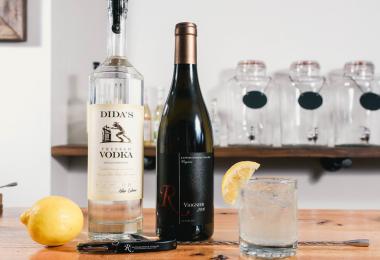In April 2016, Constellation Brands paid $285m for the Californian Prisoner wine brand. Traditionalist industry observers were surprised. This was the kind of price previously associated with spirit and beer brands rather than wine, and the Prisoner came with no land or established association with a top appellation or variety. Indeed its success had come from selling large volumes of super-premium ‘California Red Blend’.
In December 2022, an auction was held in The Hague for the Benelux rights to Moskovskaya, Stolichnaya and 16 other brands. With histories dating back to 1894 and 1938 respectively, the two vodka brands have international recognition and for many years benefited from the association of vodka with Russia. In 2006, Russian food and drink industry consultant Aleksander Sinyansky noted in a LinkedIn post, Pernod Ricard valued Stolichnaya globally at $3bn.
Six years later, in the wake of the war in Ukraine, Russia and Russian products and brands no longer have the same allure. There were only two bids—of €250,000. Both were rejected.
The failure of the auction will inevitably be attributed to the international rejection of the Russian invasion of Ukraine, not to mention a long and ongoing wrangle over Stolichnaya’s ownership between the Russian state-owned Sojuzplodoimpor and the SPI Group. Potential buyers might have been deterred by Sojuzplodoimpor's statement that “The rights to the trademarks put up for sale are being disputed in at least two lawsuits in the Netherlands, the decision in which may call into question the legality of the transaction concluded as a result of the auction, with corresponding negative consequences for their acquirer.”
However, this dispute and the 2022 conflict are only part of the explanation for the lack of excitement over these two brands. As Karl Storchmann of the American Association of Wine Economists recently pointed out, Russia may still be synonymous with vodka, but not with super premium examples of the spirit. In 2020, according to Comtrade statistics, Russia is the world's biggest exporter of vodka—103.7m litres—ahead of Sweden (83.9m L) and France (75.8m L), but its price of $1.44 per litre is one of the cheapest. Finnish vodka weighs in at $5; French at $4.70; Swedish at $4.20 and British at $4.
Brands like Absolut, Grey Goose and Belvedere don’t need customers to care about where they come from. Grey Goose may have the colours of the French (and, incidentally Russian) flag in its logo, but its fans are more likely to associate it with Sex in the City Manhattan than the land of the Eiffel Tower where it is distilled.
LVMH is far more interested in using James Bond star Daniel Craig to promote its Belvedere brand in an extraordinarily transgressive video by top director, Taika Waititi, than talking about its Polish heritage.
Like Constellation, what the French luxury giant is focused on is what excites their customers enough to pay high prices for their products, whatever the nature or origin of the liquid in the bottle.








